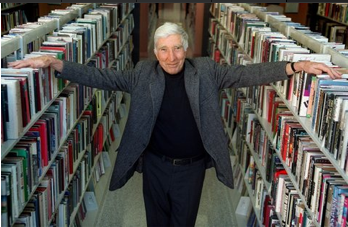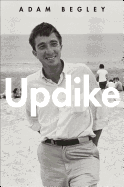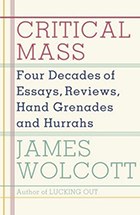 Charles Finch, in writing a review of MacArthur recipient Stuart Dybek’s most recent collections of short fiction, Paper Lantern and Ecstatic Cahoots, begins by trying to describe a style of writing that he feels is characteristic of the American short story, and credits John Updike for being a progenitor of style:
Charles Finch, in writing a review of MacArthur recipient Stuart Dybek’s most recent collections of short fiction, Paper Lantern and Ecstatic Cahoots, begins by trying to describe a style of writing that he feels is characteristic of the American short story, and credits John Updike for being a progenitor of style:
“For a while there the American short story was in dismal shape. It was never a problem of skill—many of the notable story collections of the 1990s and 2000s were technically beautiful, morally subtle, narratively refined—as much as a problem of tone. The stories that dominated the serious magazines and journals seemed to share a flat fireless quality, something like politeness, perhaps even fear. It was all so tasteful. The sense of drama was minimal. Characters dropped half out of love, or endured a minor crisis, or just wandered around treasuring their sense of dismay about, you know, the fallenness of the world. And above all, of course: that wheedling and constant push toward epiphany.
 “I think of John Updike’s 1961 story ‘A&P’ as either the infectious agent or the patient zero of this style. It’s narrated by a teenager working in a grocery store, who quits on behalf of a group of girls his manager is hassling for shopping in bathing suits. They don’t even notice his gallantry, and in the last line of the story he leaves the store, looks back, and says, ‘and my stomach kind of fell as I felt how hard the world was going to be to me hereafter.’
“I think of John Updike’s 1961 story ‘A&P’ as either the infectious agent or the patient zero of this style. It’s narrated by a teenager working in a grocery store, who quits on behalf of a group of girls his manager is hassling for shopping in bathing suits. They don’t even notice his gallantry, and in the last line of the story he leaves the store, looks back, and says, ‘and my stomach kind of fell as I felt how hard the world was going to be to me hereafter.’
“What a line! No wonder its example has been intoxicating. Its vagueness expresses such a specific ache, and it expands the meaning of the story’s mild events to suddenly and deftly. Writers before Updike had used such a turn—think of ‘Araby’ or ‘The Little Joke’—but his captured some modernist blend of longing, boredom, and elegy just behind the speakable, which has lingered in the form ever since.”
But while, in his Slate review, Finch has praise for the master, he’s critical of the limitations that imitation has imposed on American short fiction.
Read the whole review in “The ‘A&P’ Problem,” published June 6, 2014.







